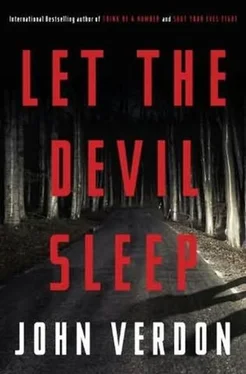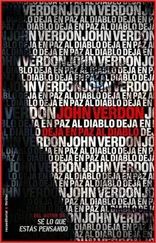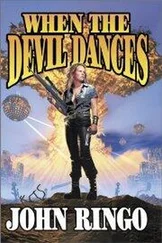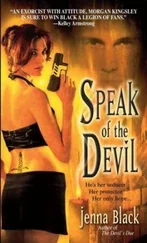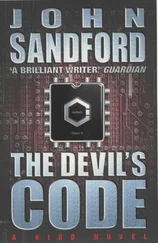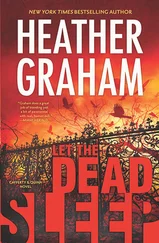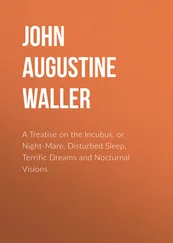“Davey boy! Bloodhound on the trail of evil incarnate! What the fuck do you want from me now?”
“Actually, quite a lot.”
“You don’t say! What a goddamn shock!”
“I’ll be seriously indebted to you.”
“You already are, ace.”
“True.”
“Just so long as you know it. Speak.”
“First, I’d like to know everything there is to know about a Syracuse University student by the name of Robert Meese, aka Robert Montague. Second, I’d like to know everything there is to know about Emilio Corazon, father of Kim Corazon, former husband of New York City journalist Connie Clarke. Emilio dropped out of sight and out of communication ten years ago this week. Family efforts to locate him have failed.”
“When you say ‘everything there is to know,’ what exactly-”
“What I mean is, everything that can be dug up within the next two or three days.”
“That’s it?”
“You’ll do it?”
“Just don’t forget all that indebtedness.”
“I won’t. Jack, I really appreciate-” Gurney began. Then he noticed that the connection had already been broken.
After he resumed his journey, he followed the instructions of his GPS off the interstate and onto a series of increasingly rural byways until he came to the turn for Foxledge Lane. There, parked at the side of the road, he saw the red Miata. Kim waved, pulled out onto the pavement in front of him, and drove slowly up the lane.
They didn’t have far to go. The first driveway, flanked by impressive drystone walls, belonged to something called the Whittingham Hunt Club. The second driveway, a few hundred yards farther on, bore no identification or visible address, but Kim turned in and Gurney followed her.
Eric Stone’s home was at the end of a quarter-mile driveway. It was a very large New England Colonial. Everywhere bits of paint were beginning to peel. The gutters needed tightening and straightening. There were frost-heave cracks in the driveway. Debris from the recent winter littered the lawn areas and flower beds.
There was an uneven brick walk connecting the driveway with the three steps leading up to the front door. The walk and the steps were covered with rotting leaves and twigs. When Gurney and Kim were halfway along this path, the door opened and a man emerged onto the broad top step. It occurred to Gurney that the man was shaped like an egg. His narrow-shouldered, large-bellied physique was wrapped from neck to knees in a spotless white apron.
“Do be careful. Please. It’s a veritable jungle out there.” His theatrical delivery was accompanied by a toothy smile and anxious eyes that fastened on Gurney. His short hair, prematurely gray, was neatly parted. His small pink face was freshly shaved.
“Gingersnaps!” he announced cheerily as he moved aside to let them into the big house.
As Gurney stepped past him, the scent of talcum powder gave way to the distinctive, spicy-sweet aroma of the only kind of cookie he thoroughly disliked.
“Just follow the hall all the way to the back. The kitchen is the coziest spot in the house.”
In addition to the staircase to the second floor, the wide traditional center hall included several doors, but the patina of dust on the knobs suggested that they were rarely opened.
The kitchen at the back of the house was cozy only in the sense of being warm and full of oven aromas. It was huge and high-ceilinged and contained all the professional-commercial appliances that a decade or two earlier had become de rigueur in the homes of the well-to-do. The stove’s ten-foot-tall exhaust hood brought to Gurney’s mind a sacrificial altar in an Indiana Jones movie.
“My mother was a devotee of quality,” said the egg-shaped man. Then he added, with a startling echo of Gurney’s passing thought, “She was an acolyte at the altar of perfection.”
“How long have you lived here?” asked Kim.
Instead of answering the question, he turned to Gurney. “I definitely know who you are, and I suspect you know who I am, but I still think it would be appropriate to be introduced.”
“Oh, stupid me!” said Kim. “I’m so sorry. Dave Gurney, Eric Stone.”
“Delighted,” said Stone, extending his hand with an ingratiating smile. His large, even teeth were nearly as white as his apron. “Your very impressive reputation precedes you.”
“Nice to meet you,” said Gurney. Stone’s hand was warm, soft, and unpleasantly moist.
“I told Eric about the article my mother wrote about you,” said Kim.
After an awkward silence, Stone pointed to a fashionably distressed pine table at the end of the kitchen farthest from the grand stove. “Shall we?”
When Gurney and Kim had taken their seats, Stone asked if either one wanted anything to drink. “I have various coffees in various strengths, as well as teas in countless herbal varieties. I also have some peculiar pomegranate soda. Any takers?”
They both declined, and Stone, making an exaggerated show of disappointment, sat down in the third chair at the table. Kim took three small cameras and two mini-tripods out of her shoulder bag. She set up two of the cameras on the tripods, one facing Stone, one facing herself.
She then explained the production philosophy at length-how “the folks at RAM” were intent on ensuring that the look and feeling of the interview was as simple and low-tech as possible, keeping it within the same visual and audio framework that was familiar to all those viewers who were accustomed to recording family moments on their iPhones. The goal was to keep it real. Keep it simple. An unpredictable conversation, not a scripted scene. With room lighting, not stage lighting. Nonprofessional. Human beings being human. Et cetera.
Whether Stone had any reaction to this declaration of authenticity was unclear. His mind seemed to wander somewhere else, refocusing only when Kim wrapped up her comments by asking, “Do you have any questions?”
“Only one,” he said, turning to Gurney. “Do you think they’ll ever get him?”
“The Good Shepherd? I’d like to think so.”
Stone rolled his eyes. “In your profession I bet you give a lot of answers like that-answers that aren’t really answers at all.” His tone was more depressed than challenging.
Gurney shrugged. “I don’t know enough yet to tell you anything more.”
Kim made some final framing adjustments in the viewfinders of her tripod cameras and put them both in HD-movie mode. She did the same with the third camera, which she kept in her hand. Then she ran her fingers back through her hair, sat up straighter in her chair, smoothed a few wrinkles out of her blazer, smiled, and began speaking.
“Eric, I want to thank you again for your willingness to participate in The Orphans of Murder . Our goal is an honest, unrehearsed presentation of your thoughts and feelings. Nothing is off-limits, nothing is out of bounds. We’re in your home, not on a studio set. The story is yours, the emotions are yours. Begin wherever you wish.”
He took a long, shaky breath. “I’ll begin by answering the question you asked me when you walked into the kitchen a few minutes ago. You asked me how long I’ve lived here. The answer is twenty years. Half of those years in heaven, half in hell.” He paused. “The first ten years, I lived in a world of sunlight cast by a remarkable woman, the last ten years in shadowland.”
Kim let a long silence pass before responding in a soft, sad voice. “Sometimes it’s the depth of the pain that tells us how much we’ve lost.”
Stone nodded. “Mother was a rock. A rocket. A volcano. She was a force of nature. Let me repeat that- a force of nature . It’s a cliché, but a good one. Losing her was like having the law of gravity repealed. The law of gravity-repealed! Imagine that. A world without gravity. A world with nothing to hold it together.”
Читать дальше
